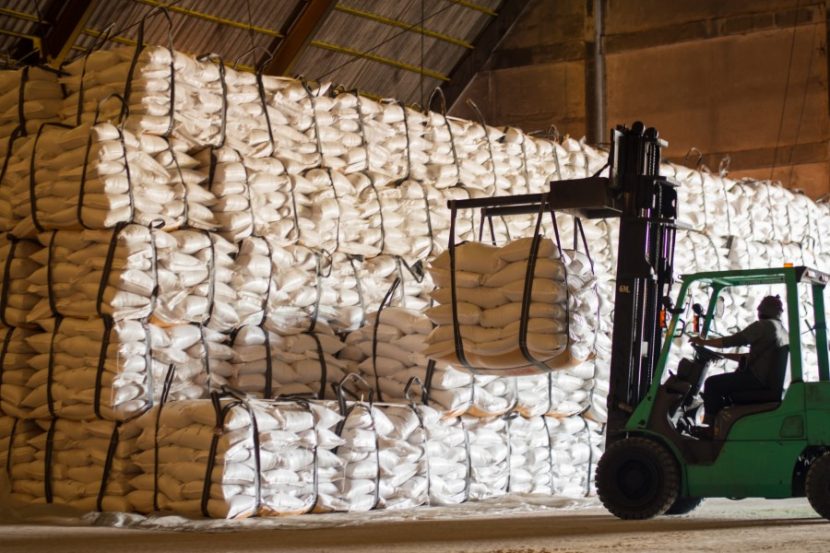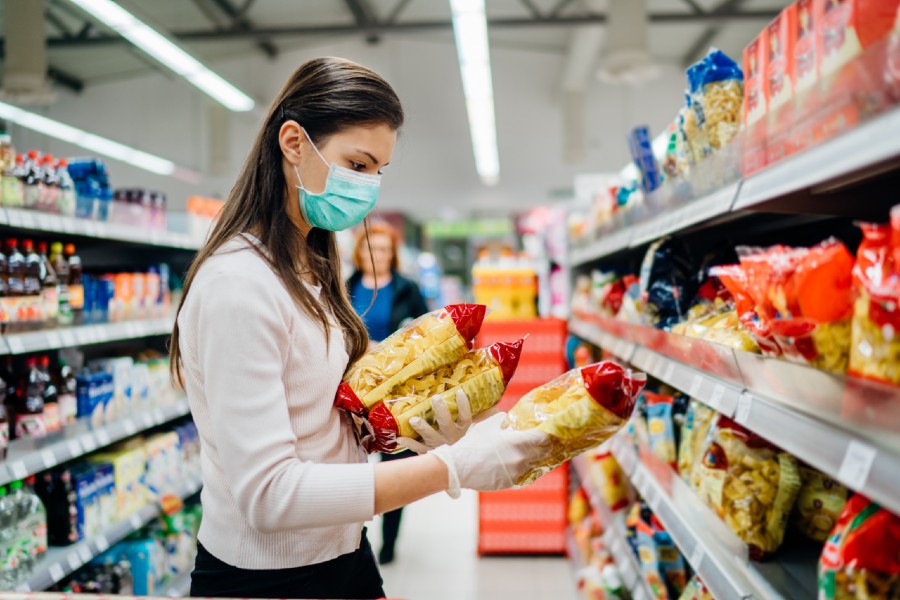The Impact of COVID-19 on the Global Food Supply Chain
By Dr. Giannis Stoitsis
With the majority of countries across the globe affected by the COVID-19, quality assurance and food safety professionals are working hard to ensure continuity of the global supply chain. Today’s most important food producing and exporting countries have been affected by COVID-19 — with cases exponentially increasing and thus causing maximum amounts of damage.
The current landscape
While there’s a large demand by consumers for shelf stable food products — such as macaroni, flour and rice, as well as for fruits and vegetables with high sources of vitamin C, there are restrictions limiting production and causing delays in the transportation. Food production is highly affected as many plants are working in a safe mode and there are fewer workers harvesting fruits and vegetables in the primary sector. Additionally, transportation of food products is facing several problems including delays, a lack of space on airplanes and increased prices. These issues are creating food safety challenges across the industry.
Such delays may result in extended storage, which in turn could affect the quality and safety of products
Food safety challenges
Concerns about the quality and safety of the products: Buyers in food manufacturing and retail companies may have concerns about the quality of products imported from countries highly affected by COVID-19. To address these concerns, they may ask suppliers within these countries to provide assurances of the safety and compliance of production processes, as well as requesting additional certificates. Providing such documentation is challenging for companies due to restrictions that have been applied at a national level in order to control the outbreak. Organizations that meet food safety standards already (such as BRCGS) have revised guidelines to allow for remote audits. According to these new guidelines, remote audits can include live video checks of the manufacturing process, the fabrication of food stuffs and the general hygiene of the site. The use of remote technology is to ensure that adequate controls are in place to avoid abuses that could compromise the integrity of the audit process.
Suppliers verification
Today the most important tool for supplier verification is not available, as on-site audits are not allowed due to travel restrictions. National authorities such as the FDA are already launching new guidelines for alternatives. This new policy was issued to minimize disruptions in the supply chain, yet without having onsite audits as a main tool, companies need to be using Food Safety Plans and other verification activities like sampling, testing or reviewing food safety records regularly. As mentioned in the policy: “Alternative methods need to be defined to provide sufficient assurances that hazards have been significantly minimized or prevented during the period of onsite audit delay.”
Delays in the food supply chain
While loading and unloading has continued to function in the major ports of the world, barge services have been delayed at a number of ports, according to data collected and analyzed by Marine Traffic. Furthermore, major ports around the world have now adopted a 14-day quarantine period for vessels arriving from, or transiting through, China. Such delays in transportation may result in extended storage, which in turn could affect the quality and safety of products — for example the development of toxins in cereals and nuts.
This new landscape is not a temporary situation. The supply chain will be affected for at least several months, resulting in new and continually fluctuating environments which affect the way food safety professionals must perform risk estimation. This reality calls for remote supplier verification and risk estimation, virtual audits and extensive data available to support decision making.
About the Author:
Dr. Giannis Stoitsis is the Head of Product and a business partner of Agroknow. He has more than 10 years’ experience in data-powered agri-food solutions and services. He is an expert in developing and delivering advanced technologies for aggregating, managing, analyzing, discovering and visualizing data to support decision making related to the food safety sector. He has served in various operational positions in Agroknow, such as the CTO and COO, launching several data services for organizations and companies in the food sector.

-
 FeaturedRisk management
The Cost of a Breach: What a Cyberattack Could Mean for Food Safety Recalls
FeaturedRisk management
The Cost of a Breach: What a Cyberattack Could Mean for Food Safety Recalls
-
 FeaturedRisk management
Securing the Food Chain: How ISO/IEC 27001 Strengthens Cybersecurity
FeaturedRisk management
Securing the Food Chain: How ISO/IEC 27001 Strengthens Cybersecurity
-
 FeaturedRisk management
Revolutionizing Food Safety Training: Breaking Out of the “Check-the-Box” Mentality
FeaturedRisk management
Revolutionizing Food Safety Training: Breaking Out of the “Check-the-Box” Mentality
-
 GFSI Standards
GFSI 2025: Building Trust, Tech-Forward Solutions, and Global Unity in Food Safety
GFSI Standards
GFSI 2025: Building Trust, Tech-Forward Solutions, and Global Unity in Food Safety
-
 FeaturedFood Safety
Integrated Pest Management: Strategies to Protect Your Brand’s Reputation
FeaturedFood Safety
Integrated Pest Management: Strategies to Protect Your Brand’s Reputation
-
 FeaturedFood Safety Culture & Training
No Open Door Policy: Challenges That Impact Pest Control in Food Processing Plants
FeaturedFood Safety Culture & Training
No Open Door Policy: Challenges That Impact Pest Control in Food Processing Plants




